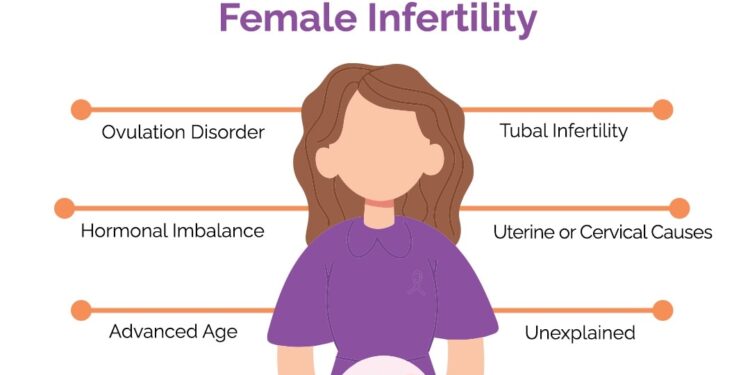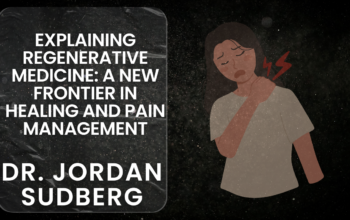Polycystic Ovarian Syndrome (PCOS) is a common hormone disorder that affects women of reproductive age. It can cause a range of symptoms, such as irregular menstrual cycles, excessive hair growth, and infertility. In this blog post, we will cover the most common symptoms of PCOS, as well as treatment options. By the end of this post, you should have a better understanding of PCOS and how to treat it.
For Those Who Want to Know More Info: selon un rapport
What Is Polycystic Ovaries?
Polycystic ovaries (PCOS) are a condition that affects women of reproductive age. PCOS is a hormonal disorder that causes an imbalance in the levels of hormones in the body. There are many different symptoms associated with PCOS, but most commonly it is associated with difficulty getting pregnant, high levels of testosterone, and acne.
PCOS can be diagnosed by taking a comprehensive medical history and by performing a physical examination. The most common symptoms of PCOS include irregular or absent menstrual cycles, excessive hair growth on the face and body, obesity, problems with fertility, androgenic acne, and infertility. Some women also experience depression or anxiety as a result of PCOS.
There are many different types of fertility treatments available to those suffering from PCOS, including intrauterine insemination (IUI), artificial insemination using donor sperm or eggs (ART), and gamete intrafallopian transfer (GIFT). Additionally, dietary changes such as reduced carbohydrate intake and increased fiber intake may help to improve fertility in those suffering from PCOS. Some medications available to treat PCOS include metformin and birth control pills that contain estrogen such as Yaz or NuvaRing.
Supplements that may be helpful for managing PCOS include chromium picolinate supplements for insulin resistance management, evening primrose oil for reducing inflammation throughout the body, magnesium supplements to help regulate blood sugar levels, GLA supplements for improving hormone balance overall, probiotics for restoring gut health, vitamin D3 supplements to support ovulation induction/maintenance, urea cycle disorder herbs such as dandelion root or licorice root extract capsules (0.5-1g per day), soy isoflavones supplement (0.35-0.65mg per day), lutein/zeaxanthin supplement (0.7-1.5mg per day), copper sulfate mineral supplement (0.2-2mg per day).
In addition to these dietary changes, there are also lifestyle changes which can be made to manage polycystic ovary syndrome, including maintaining a healthy weight, eating plenty of fruits and vegetables, avoiding excessive sugar, getting adequate exercise, avoiding stress, quitting smoking cigarettes, and controlling cholesterol levels if necessary.
Identifying Symptoms And Available Treatments For PCO
There is no one-size-fits-all solution to the puzzle that is PCOS, but there are a number of signs and symptoms that can help you identify if you have the condition. PCOS is a hormonal disorder that affects women primarily, and it can lead to a number of unpleasant consequences, including irregular periods, excessive facial and body hair, acne and cysts on the ovaries. While there is no cure for PCOS at this time, there are many treatments available that can help to reduce symptom severity.
One of the most important steps in treatment is lifestyle modification. This means making sure that you eat a healthy diet full of fruits and vegetables and exercising regularly. In addition to diet and exercise, hormonal therapy may also be effective in reducing PCOS symptom severity. There are several different types of hormonal therapy available currently, each with its own set of benefits and side effects. It’s important to speak with your doctor about which therapy will work best for you based on your individual symptoms and history.

PCOS can be extremely emotionally burdensome for women who suffer from it, leading to emotional symptoms like anxiety or depression. It’s important to find local support groups so that you can discuss strategies for managing PCOS together. Additionally, online resources like forums or blogs can provide helpful information and support when it comes to living with PCOS. Long term monitoring is also essential when treating PCOS, as changes in lifestyle or medication may occur over time. By staying informed about current research regarding PCOs treatments and learning how to cope with common emotional issues related thereto, you’ll be able to manage this condition effectively..
Common Symptoms Of PCOS
Polycystic ovary syndrome (PCOS) is a condition that affects women of reproductive age. It is a common condition that can cause many symptoms, some of which are listed below. If you’re experiencing any of these symptoms, it’s important to see your doctor for diagnosis and treatment.
Irregular menstrual cycles or very sparse menstrual flow
Acne and excess hair growth on the back, face, chest, and abdomen
Weight gain or difficulty losing weight
Difficulties in getting pregnant
Hair loss and thinning hair
Depression, anxiety, and mood swings
Pelvic pain and trouble sleeping
Dark patches of skin on the neck, arms, breasts, and thighs
High levels of insulin and blood sugar.
Treatment Options For PCOS
PCOS is a condition that affects many women, and it’s often difficult to know what to do about it. If you’re experiencing any of the most common symptoms of PCOS, it’s important to explore your treatment options. Below, we’ll outline some of the most effective treatment options for PCOS and discuss the role that diet and exercise play in treating this condition.
Read Also: Can I Get a Kidney Transplant More than Once?
PCOS is a condition that causes an imbalance of hormones in the body. This can lead to a host of symptoms, including acne, weight gain, and difficulty regulating blood sugar levels. To find out if you have PCOS, your doctor will perform a series of tests to determine if you’re suffering from this condition. If you are diagnosed with PCOS, it’s important to work with your doctor to develop a treatment plan that best suits your needs. There are several effective treatment options available for PCOS sufferers, and each has its own strengths and weaknesses.
One option for treating PCOS is oral contraceptives (OCs). OCs are medications that help to regulate hormone levels in the body by preventing ovulation. They are also associated with decreased risk of ovarian cancer in women who take them regularly over many years. However, OCSs come with some risks – including potential side effects such as weight gain or mood swings – so it’s important to discuss all potential treatment options with your doctor before making a decision about which one is right for you.
To Summarize
PCOS is a common hormone disorder that affects women of reproductive age and can cause a range of symptoms, such as irregular menstrual cycles, excessive hair growth, and infertility. There are many different types of treatments available for PCOS, including lifestyle changes, such as diet modification and increased exercise, hormonal therapy to help regulate hormones in the body, supplements for insulin resistance management and hormone balance overall, as well as fertility treatments, such as intrauterine insemination (IUI), artificial insemination using donor sperm or eggs (ART), and gamete intrafallopian transfer (GIFT). It is important to speak with your doctor about what treatment options are best suited for you based on your individual symptoms.



